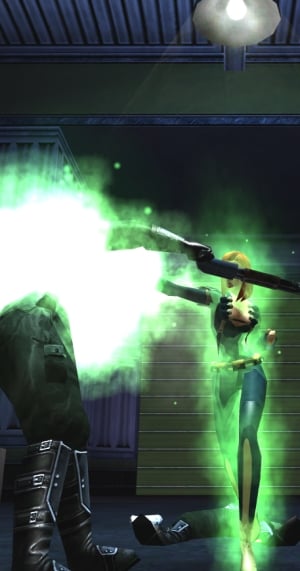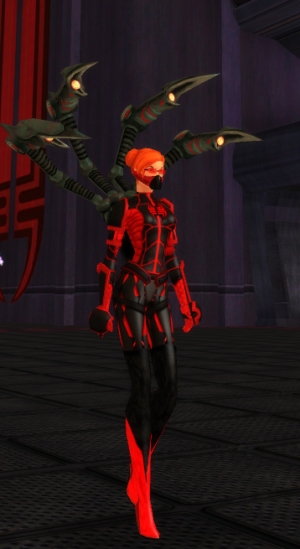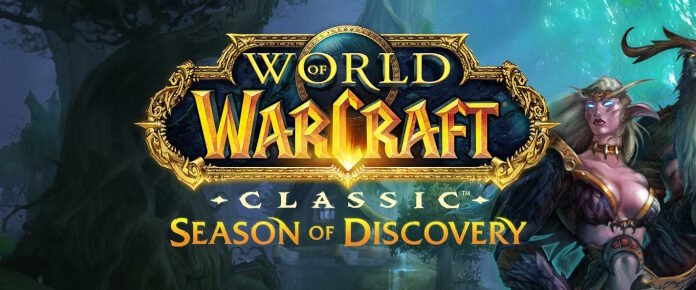
Today, City of Heroes turns 12 years old. Except it doesn’t; the game shut down three years ago, it never lived until it reached twelve, and any and all adventures in the game were cut short. Like the ending of Bruce Sterling’s short story Dori Bangs, anything we write about the game is just a paper dream to cover the holes that are left. No more adventures will be had in Paragon City.
You don’t need me to tell you about it, though. I wrote about it when it happened. That was then and this is now, and amidst everything else it’s sometimes easy to forget that CoH was a game.
I’m not going to tell you that it’s the best game ever, but I am going to tell you that the game had some damned brilliant systems that have not been picked up by the world yet for no good reason whatsoever. So in the wake of the anniversary, let’s talk about the stuff from Paragon City that should be in every metaphorical living room across the MMO sphere.
1. Level scaling
 I am honestly astonished that this is not something we see in every MMO ever. Final Fantasy XI and Final Fantasy XIV both feature it in one direction, Star Wars: The Old Republic scales you to a certain cap for a given planet (albeit while keeping all of your higher-level abilities), Guild Wars 2 has its area caps… but by and large, level scaling is hard to find. Which is stunning to me because it’s an obvious way to fix the issue of having friends enter the game after you’ve outleveled things.
I am honestly astonished that this is not something we see in every MMO ever. Final Fantasy XI and Final Fantasy XIV both feature it in one direction, Star Wars: The Old Republic scales you to a certain cap for a given planet (albeit while keeping all of your higher-level abilities), Guild Wars 2 has its area caps… but by and large, level scaling is hard to find. Which is stunning to me because it’s an obvious way to fix the issue of having friends enter the game after you’ve outleveled things.
Providing a means for players to work together and get something out of the experience is a universally positive thing for the health of any game. More titles should use it, and City of Heroes managed to almost effortlessly scale its levels in either direction ages ago. The fact that I never had to wonder about another person’s level was a mark in its favor, and it sure didn’t hurt the ability to form communities regardless of personal progress.
2. Inspirations
Consumables in most MMOs are kind of a mess. They’re usually crafted, which means that they’re not readily available for people other than the crafter, and they’re a pain and a half to balance quite right. Either they’re not powerful enough to matter, or they’re so powerful that they need to be used at all times. You never feel great about spending money on them, and they often sit around, too valuable to use or to get rid of.
CoH fixed this right off. Inspirations were plentiful and could be combined freely in the field, which meant that people would almost always toss you one or two when needed in combat. You never worried about not having the right one, and you also never worried about using them, since you’d get another quickly enough. I’m relatively certain that Inspirations could exist alongside crafted potions, even, although it seems we’ll never find out.
3. Enhancements
I’ve said in the past that Enhancements were basically the game’s answer to gear, so in some ways it’s totally understandable why not every game uses them. At the same time, Enhancements weren’t linked to the character, but to abilities. I like that. I like that the game made it possible for you to pick and choose between your abilities and decide what your real workhorse tricks would be, make your cooldowns that much shorter, and so forth. That, if nothing else, is something I’d like to see from more or less every game.
4. Travel powers
 Again, not every game should necessarily have travel powers. But the core behind the travel powers was appreciable, for two reasons. First and foremost was the fact that travel powers were different. Not everyone traveled quickly in the same way, and while I completely understand having a standardized mount speed, I think it’s worthy that the game recognized and even celebrated the idea that some movement modes were faster than others with independent drawbacks. You made a choice between Super Jump and Flight that had to do with speed, movement, and so forth, and the developers weren’t afraid to make it faster to go on the ground than in the sky.
Again, not every game should necessarily have travel powers. But the core behind the travel powers was appreciable, for two reasons. First and foremost was the fact that travel powers were different. Not everyone traveled quickly in the same way, and while I completely understand having a standardized mount speed, I think it’s worthy that the game recognized and even celebrated the idea that some movement modes were faster than others with independent drawbacks. You made a choice between Super Jump and Flight that had to do with speed, movement, and so forth, and the developers weren’t afraid to make it faster to go on the ground than in the sky.
The other nice thing? Travel powers were fast. When you were moving, you were moving. That’s missed.
5. Mission Architect
Balancing Mission Architect to make it rewarding without being the only place to level or completely pointless was a complicated issue and was never, ever going to be easy. I entirely understand why companies are reluctant to put in player-generated content tools for any given game even on that basis alone. You don’t want people exploiting the system for insanely fast leveling, and you don’t want people using the system legitimately to feel as if they’re actively being punished for doing so.
That having been said… boy, it does a lot of good for the game when you let players add some stuff in. I can think of dozens of games that would benefit from letting players work with maps and drop stuff in there. I mean, let’s be real here: If we’re going to go more than a year between World of Warcraft updates, you’d think the designers would at least ask the players to shore up the gap, right?
6. Faction shifting
Unlike many of the features on the list, this really was not a core part of CoH. This was very explicitly added with Going Rogue, and it was excellent, breaking down the wall of character types only available to one side or the other and making the factional interplay more interesting just by virtue of not having an absolute split.
Factional splits in games are all well and good by themselves, and they can make life easier for structured PvP. But preventing players from interacting due to factions undercuts that element, I feel. If your interactions with the other faction don’t involve things like grouping or even talking, you don’t get that odd twinge of knowing that you could wind up on opposite sides of the battlefield before too much longer. I greatly appreciate that CoH let you jump factions and let you do so in such a way that it felt like a process.
7. Power pools
This one might be a bit of a mixed bag here, I admit, but I really like the idea that players had choices between secondary powers that mostly served for utility. Sure, some of them were overpowered (and wound up becoming baseline) and others were arguably useless, but when you consider that every single class or character build has “empty” levels… it just seems sensible to give players the opportunity to pick between minor improvements instead. I’d certainly prefer the equivalent of power pools to Final Fantasy XIV‘s attribute points, I tell you.

8. Debt
The idea of gear durability breaking down has become the almost universal system for a death penalty, but I think it’s a shame that Debt never became a thing. Debt never meant lost progress or an active financial hit, which was nice; you could never be too broke to keep playing after death. But you were going to be moving more slowly for a while. It hit a marvelous balance between making any given death feel significant without feeling like you were crippled.
9. Day jobs
I am willing to bet that most people didn’t think about this system in any depth after it was implemented, but it seems like the sort of thing that should be in every game. As it stands, most games accompany your logout with an urgent desire to get to the inn or a rest area or a cantina or whatever, a designated “stop here” locale that has a very specific benefit. What made day jobs so great is the fact that they turned the world into designated locations for you to stop, with associated benefits as a result.
Some games have played with the idea of persistence while offline (Age of Wushu springs to mind), but very few have done so in such a straightforward and pleasant way. It’s a chance to not just finish your play session but ask yourself what you want to do for your next play session, creating a longer-term investment.
10. Radio missions
When I think of “quick, disposable content,” I think of radio missions. Disposable content isn’t an insult, in this case; it means stuff where you go in, do something, and move on. CoH was the absolute king of that content, offering you all of the drama and excitement of a confrontation with baddies in bite-sized chunks that read a bit like a fill-in-the-blanks affair (“Stop the [FIFTH COLUMN] from stealing the [WEAPONS] from the [WAREHOUSE] by [FIGHTING A NAMED ENEMY]”) but was still plenty of fun.
It also astonishes me that more games don’t feature this, even – again – for incremental rewards. Semi-randomized content like this gives you a reason to dive in, do some stuff for a while, and then log out or get wrapped up in something bigger. There are so many maps out there in long-running games, and I can’t help but think that from World of Warcraft to The Secret World, players would happily jump in and do a little bit of randomized content for rewards.
Sure, I can’t bring my crab spider backpack everywhere, but I’d be content if I could bring along some of the freewheeling attitude that made me love it so.
 Everyone likes a good list, and we are no different! Perfect Ten takes an MMO topic and divvies it up into 10 delicious, entertaining, and often informative segments for your snacking pleasure. Got a good idea for a list? Email us at justin@massivelyop.com or eliot@massivelyop.com with the subject line “Perfect Ten.”
Everyone likes a good list, and we are no different! Perfect Ten takes an MMO topic and divvies it up into 10 delicious, entertaining, and often informative segments for your snacking pleasure. Got a good idea for a list? Email us at justin@massivelyop.com or eliot@massivelyop.com with the subject line “Perfect Ten.”














